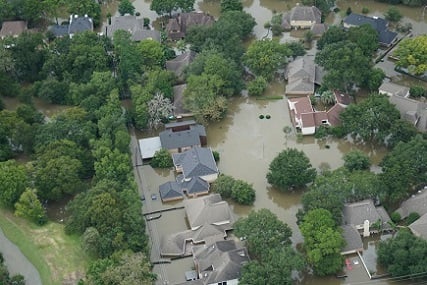

A new report from the Geneva Association has looked into the flood risk management system in Canada, and it found that while insurers have been doing their part to help reduce flood risk across the country, more can still be done to improve floor risk awareness and mitigation.
The report, entitled “Flood Risk Management in Canada,” was developed in partnership with Intact Financial. It highlights the evolving relationship between insurers and the government to enhance flood risk awareness and mitigation, as well as any important gaps in flood mitigation that the industry and government need to address.
Insurers in Canada are supporting communities and households to reduce their flood risks, the report found. It noted that flood insurance was first introduced in the country in 2016 to reduce the pressure on government programmes, and the coverage is voluntary – sold as an optional endorsement or bundled with sewer backup coverage. Insurers have also led efforts to pursue cross-sectoral and governmental collaboration to improve risk awareness and uptake of flood insurance.
The report also noted that the federal government has taken its first step towards the establishment of a National High Risk Residential Flood Insurance Program, with the encouragement of the Insurance Bureau of Canada.
However, the Geneva Association found that there is still a need to further enhance multi-sectoral collaboration in Canada to improve flood risk awareness and mitigation; the government continues to take a disproportionately large responsibility for managing flood risk, with limited engagement among non-governmental and private sector stakeholders. Furthermore, the report said that there are other issues with certain aspects of Canada’s flood risk management approach, such as outdated flood mapping, the continued development in high flood-risk areas with limited land use regulation, and the predominance of hazard-based flood risk management approaches that rely on historical flood design requirements.
“The overall findings of our research series … underscore how critical it is for countries to take a forward-looking, holistic, all-of-society approach in their flood risk management,” said Geneva Association director of climate change and emerging environmental topics Maryam Golnaraghi.
Golnaraghi noted, however, that further reform is needed to increase incentives for risk reduction and prevention measures for new builds and retrofitting existing buildings and public infrastructure. Engagement is also needed with other sectors, such as banks, mortgage lenders, and other financial institutions, especially when it comes to their roles in incentivizing risk reduction.
“Climate change has significant economic and human impacts – the time to adapt is now,” said Intact Financial vice president of corporate affairs Diane Flanagan.
